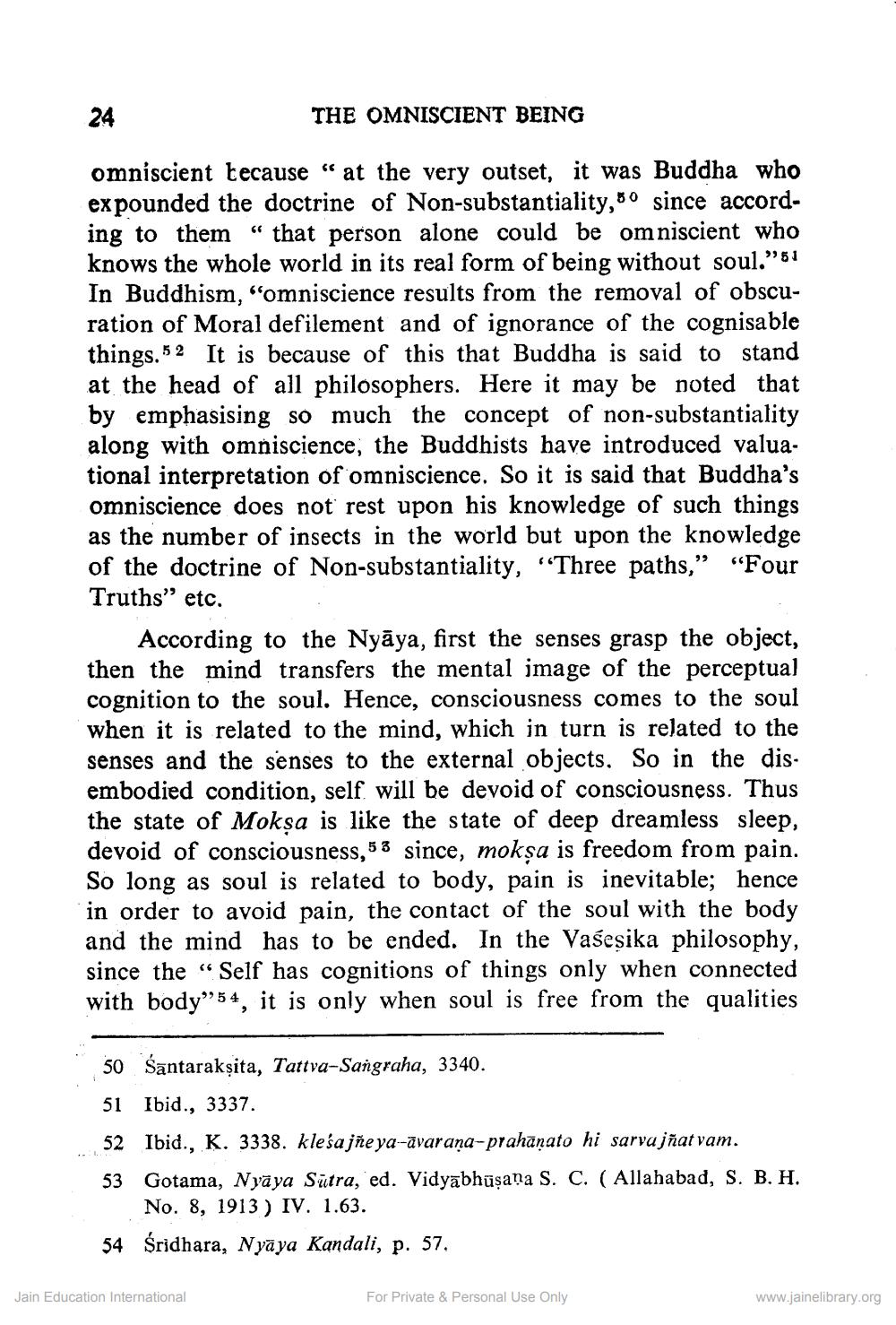________________
THE OMNISCIENT BEING
omniscient because “at the very outset, it was Buddha who expounded the doctrine of Non-substantiality, 50 since according to them “ that person alone could be omniscient who knows the whole world in its real form of being without soul.”81 In Buddhism, "omniscience results from the removal of obscuration of Moral defilement and of ignorance of the cognisable things. 5 2 It is because of this that Buddha is said to stand at the head of all philosophers. Here it may be noted that by emphasising so much the concept of non-substantiality along with omniscience, the Buddhists have introduced valuational interpretation of omniscience. So it is said that Buddha's omniscience does not rest upon his knowledge of such things as the number of insects in the world but upon the knowledge of the doctrine of Non-substantiality, “Three paths,” “Four Truths” etc.
According to the Nyāya, first the senses grasp the object, then the mind transfers the mental image of the perceptual cognition to the soul. Hence, consciousness comes to the soul when it is related to the mind, which in turn is related to the senses and the senses to the external objects. So in the dis. embodied condition, self will be devoid of consciousness. Thus the state of Moksa is like the state of deep dreamless sleep, devoid of consciousness, 53 since, mokṣa is freedom from pain. So long as soul is related to body, pain is inevitable; hence in order to avoid pain, the contact of the soul with the body and the mind has to be ended. In the Vaśesika philosophy, since the “Self has cognitions of things only when connected with body"54, it is only when soul is free from the qualities
50 Santarakṣita, Tattva-Sangraha, 3340. 51 Ibid., 3337. 52 Ibid., K. 3338. klesajñe ya-avarana-prahāṇato hi sarva jñat vam. 53 Gotama, Nyāya Sūtra, ed. Vidyabhūṣaṇa S. C. ( Allahabad, S. B. H.
No. 8, 1913) IV. 1.63. 54 Sridhara, Nyāya Kandali, p. 57.
Jain Education International
For Private & Personal Use Only
www.jainelibrary.org




